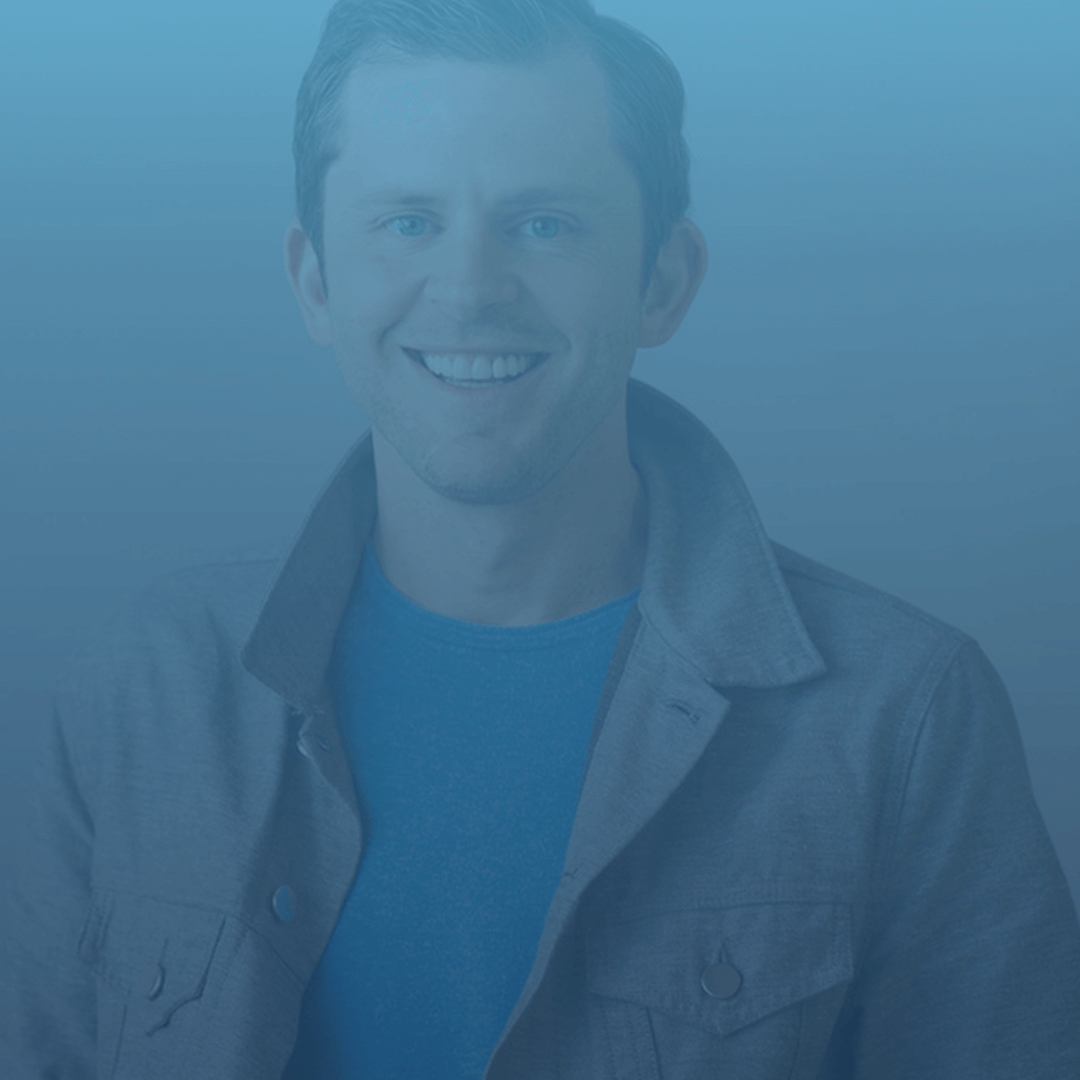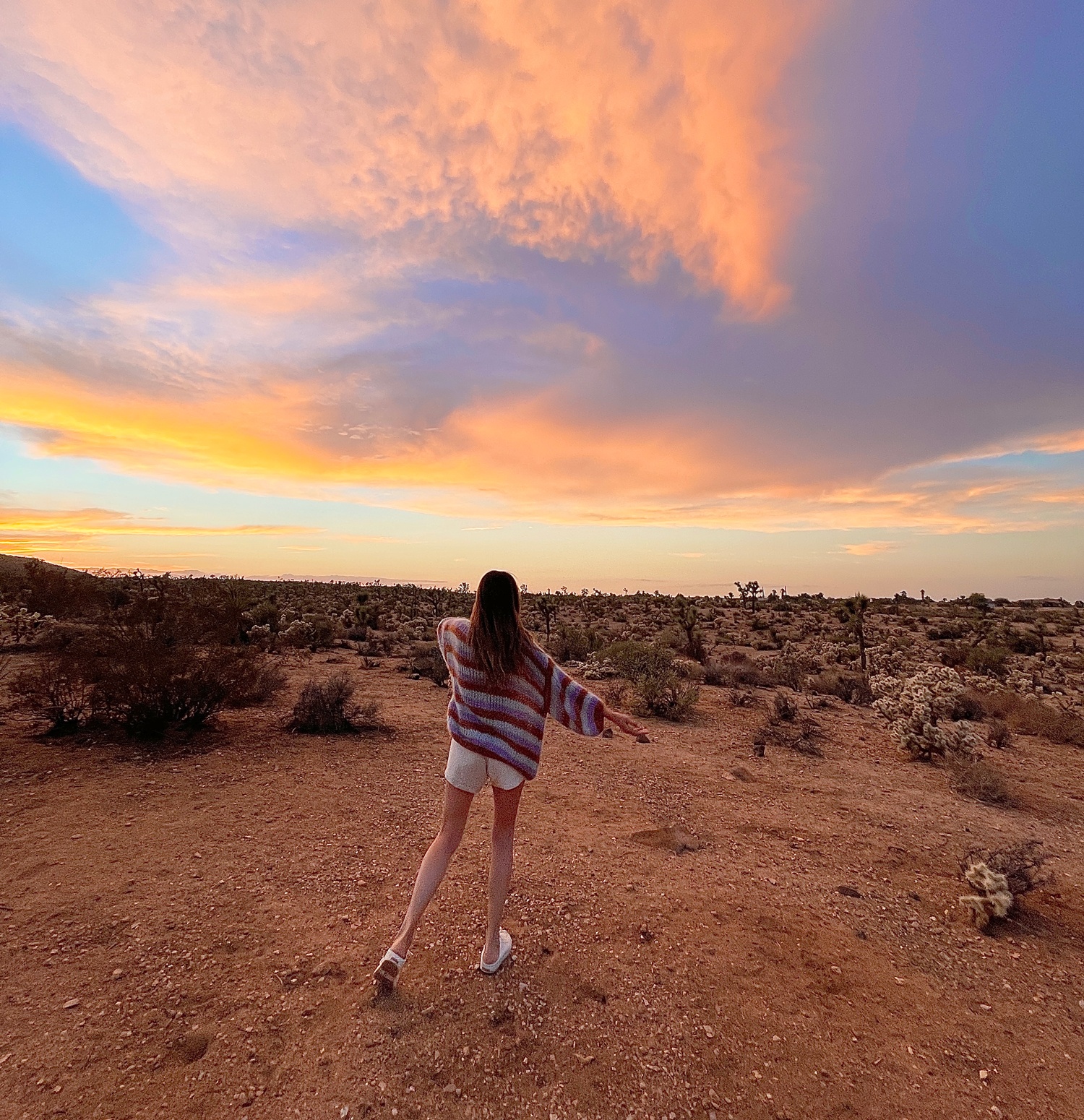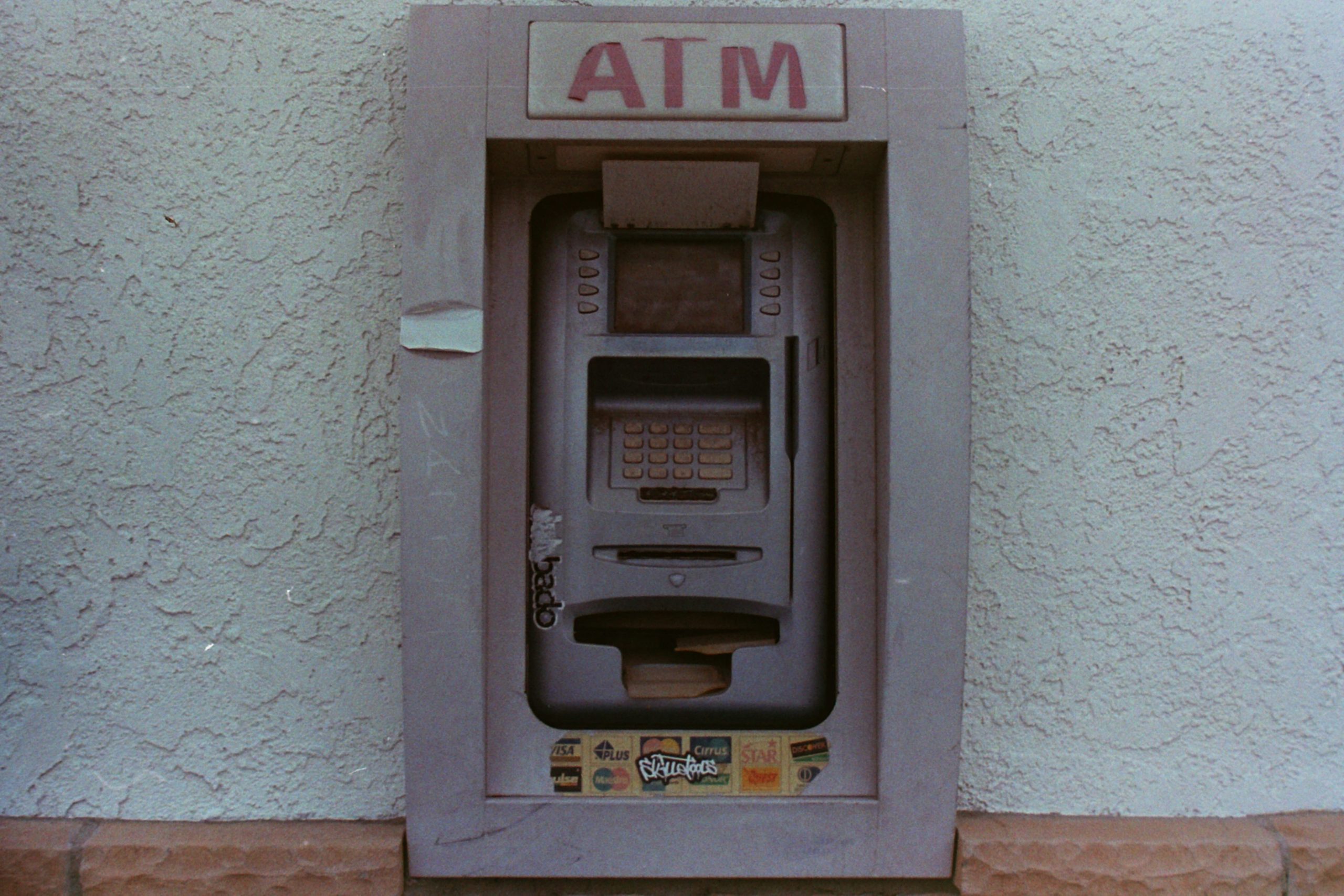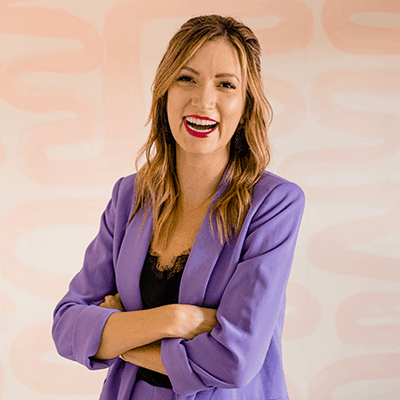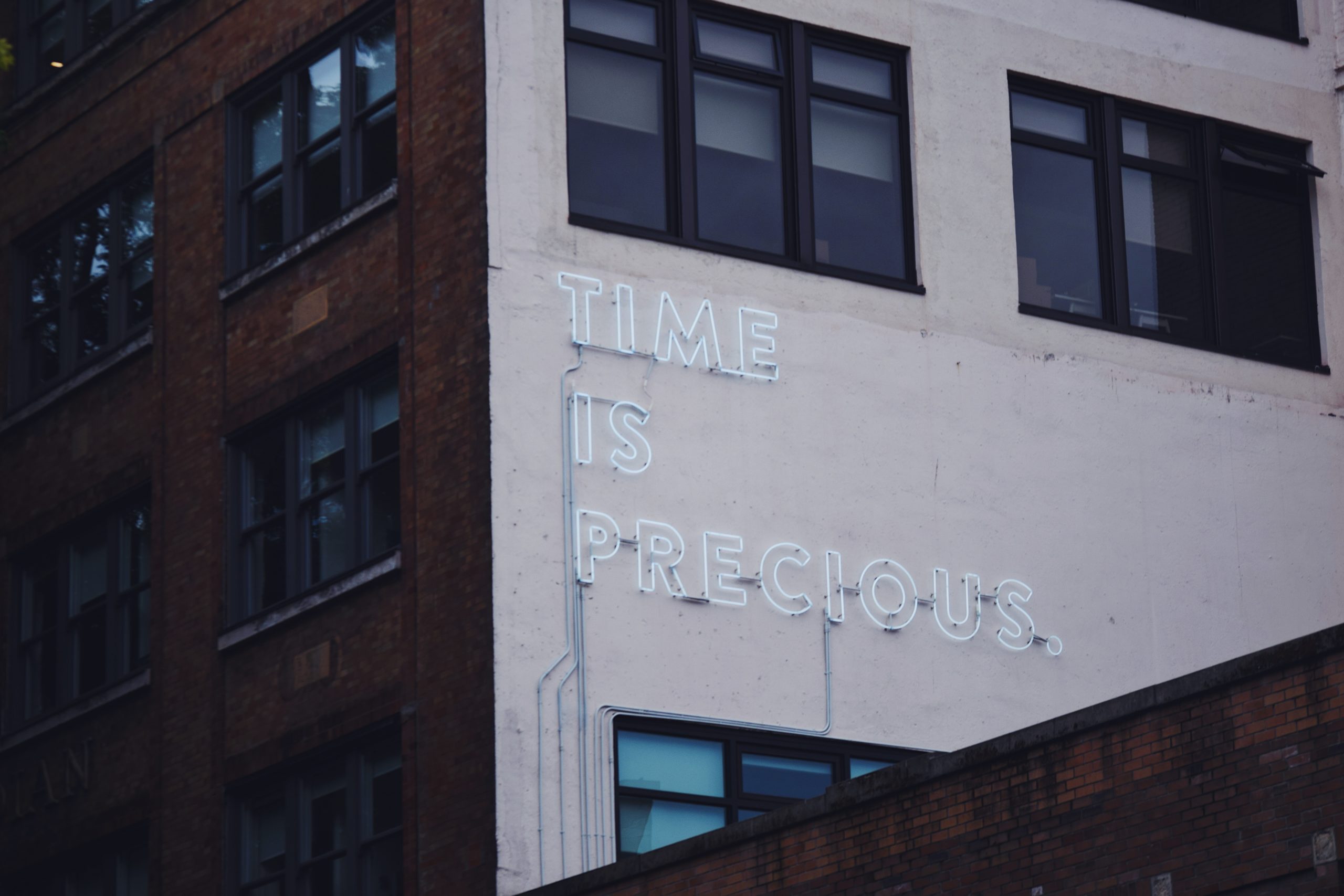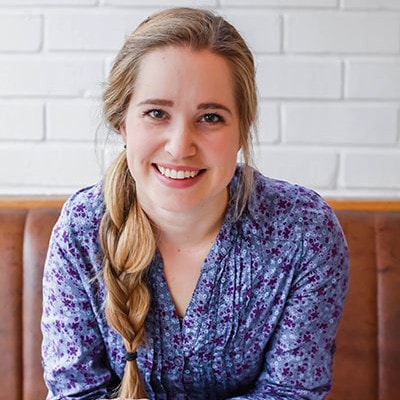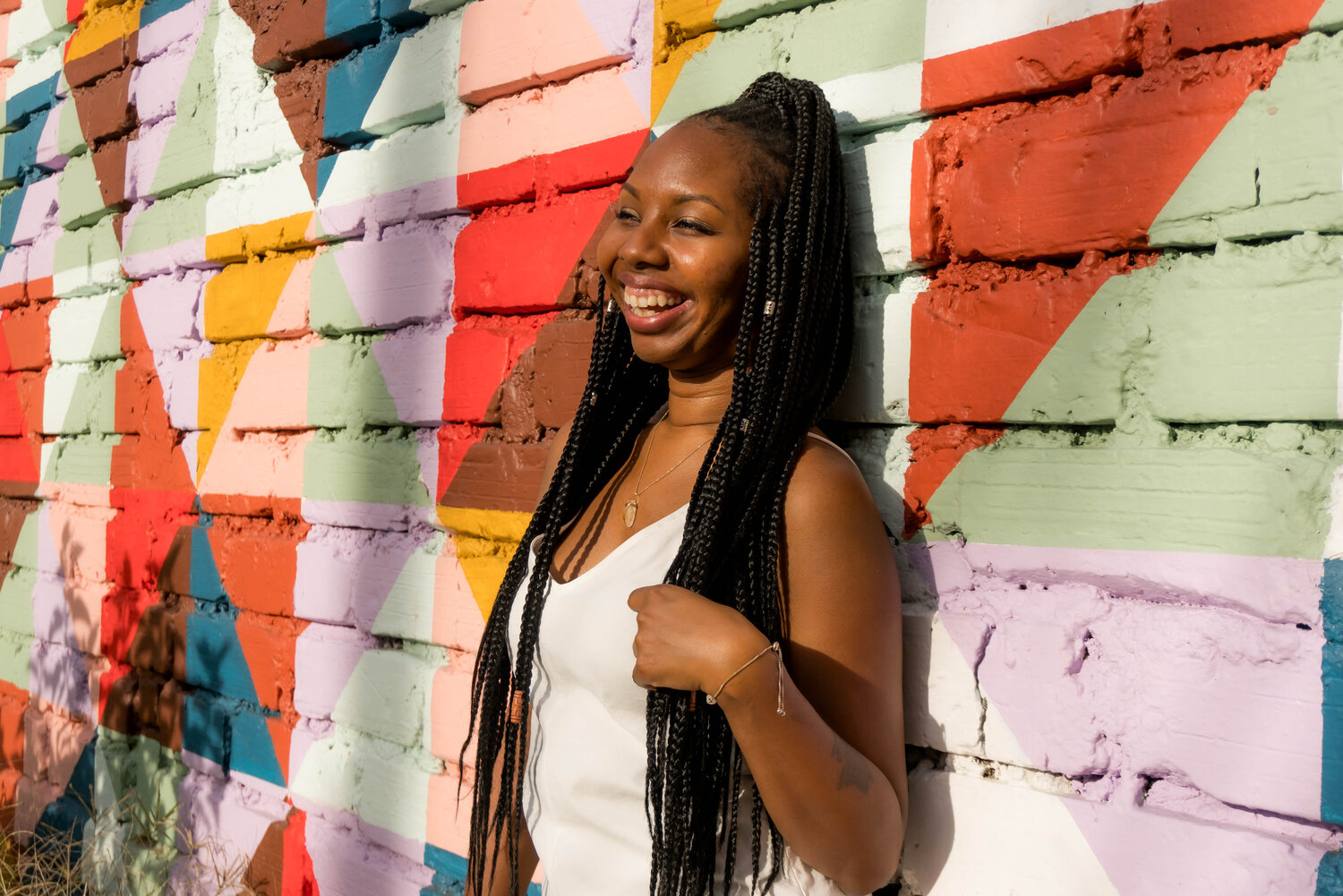Are you ready to expand your life, propel yourself to new experiences, and start a profitable side hustle in less than a month?
Well, you are going to LOVE everything that New York Times bestselling author and entrepreneur Chris Guillebeau shares in this fun and enlightening conversation.
I’m not gonna lie, Chris is a pretty fascinating guy. He succeeded in traveling to every single country before his 35th birthday, annnd he even hosts a wildly popular conference for thousands of people while still balancing his energy as an introvert. (You might have heard of it, it’s called World Domination Summit!)
I think you’ll agree after tuning in — Chris is the type of instant friend who inspires you to do and become more and to chase your dreams, no matter how lofty or far-fetched they might seem.
Not to mention, he just released a brand new book called Side Hustle: From Idea to Income In 27 Days. In this interview, Chris is breaking down some of his best side hustle strategies to help you create more income in your life. Yes, even if you have a full-time job. (Spoiler: My boyfriend is reading the book right now and LOVES it.)
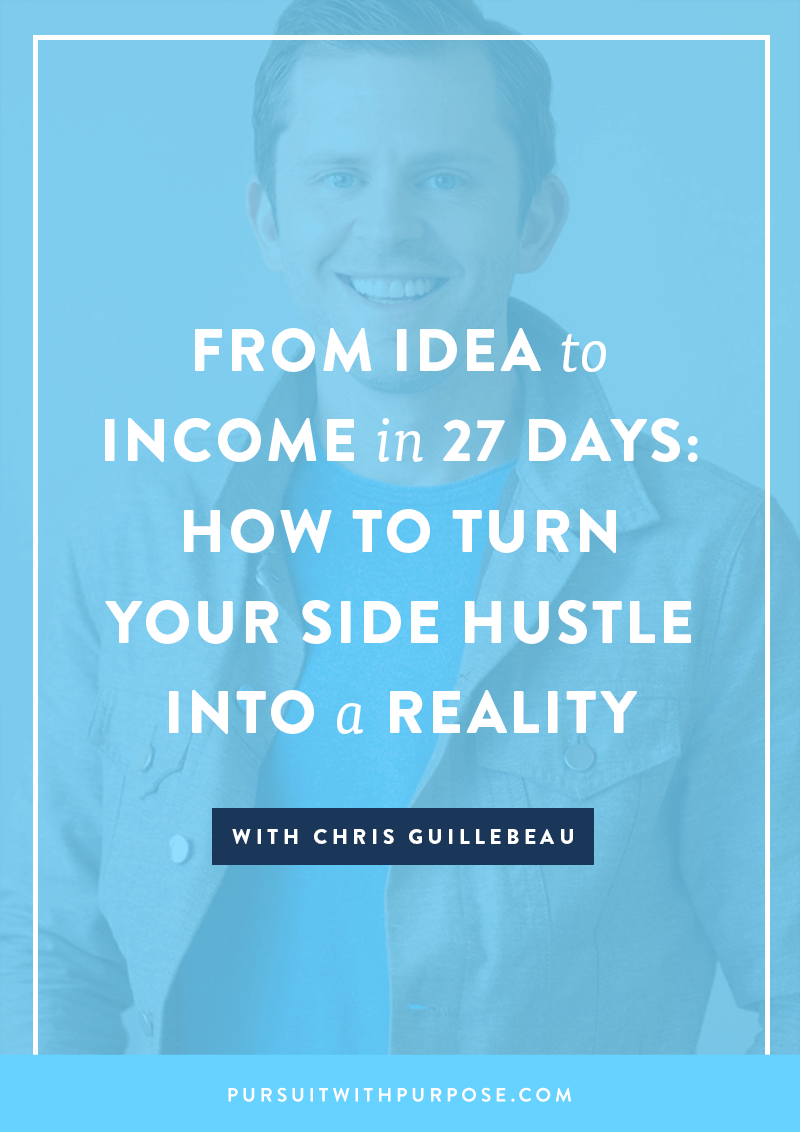
Check out the episode below:
In this episode, you’ll hear about things like…
- The real reasons Chris set out to travel the world (and visit every single country), plus the powerful shifts he experienced during the process.
- Chris’s top strategies for introverts, and why being an introvert is not a weakness that you need to overcome, but a strength that builds deep connection.
- Why Chris felt that now was the right time to release a book about side hustles.
- What you should do instead of following your passion.
- How to create a profitable side hustle, along with a few key questions to ask yourself before you start…
Some Questions I ask Chris…
1. After visiting every country in the world, what were some of the core messages that stood out to you or were the biggest paradigm shifts you had?
2. What are some examples of unique side hustles you’ve seen people create?
3. Do you have any tips for someone who feels completely unhappy in their day job and is working on a side hustle, hoping for it to one day be their full-time gig? How can they stay sane at work while they’re hustling on the side?
Links from the interview:
- Side Hustle School
- Chris’s Books
- Chris on Facebook
- Chris on Instagram
- Chris on Twitter
- World Domination Summit
What do you think?
I’d love to hear your thoughts on this episode. Are you currently balancing a 9-5 with a side hustle?
Here’s how to subscribe + review
Want to be the first to know when new episodes are released? Click here to subscribe in iTunes!
Also, podcast reviews are pretty darn important to iTunes and the more reviews we receive, the more likely we’ll be able to get this podcast and message in front of more people (something about iTunes algorithms?). I’d be extremely grateful if you left a review right here letting me know your favorite part of this episode.
#PursuitWithPurpose
Loving the podcast? I encourage you to use the hashtag #PursuitWithPurpose to show our PWP tribe how you live your purpose everyday. Plus, you’ll get to sift through the hashtag to find other business owners who care about community and connectedness over competition and comparison. And I’ll be reposting some of my favorite images and stories, too. 🙂
Thank you for listening!
Transcript
Read the Interview Transcription HereHey Pursuit tribe! Welcome back to another episode of Pursuit with Purpose. Now, do you know when you’re having a conversation with somebody and you both are just vibing, like when you feel the other person just gets you and where you don’t want the conversation to end? I love conversations like that, and that is exactly how I felt while interviewing today’s guest, Chris Guillebeau. He’s the kind of person that becomes your instant friend. During this conversation, we talk about how Chris has traveled to every single country before his 35th birthday, which probably could have been an entire episode on its own, as well as how he’s able to host an enormous conference for thousands of people every year while still balancing his energy as an introvert. You might have heard of the conference. It’s called World Domination Summit. I definitely want to go next year. I think you’ll agree that Chris is the type of person who inspires you to do and become more, and to chase your dreams no matter how lofty or far-fetched they might seem. Not to mention, he just released a new book called “Side Hustle”, which will help you create a source of income in 27 days. My boyfriend is actually reading it right now and he says it’s phenomenal.
In this interview, Chris is breaking down some of his side hustle strategies to help you create more income in your life, even if you’ve got a full time job. Now if you’re ready to expand your life, propel yourself to new and beautiful experiences and start a profitable side hustle in less than a month, you will love everything Chris shares in this fun and enlightening conversation. Let’s dive in.
Melyssa Griffin: Hey Chris, welcome to the show.
Chris Guillebeau: Hey, thank you so much for having me.
Melyssa Griffin: Awesome! I am so excited to chat with you. I saw you speak at Summit of Greatness and we were just talking about this a second ago. I loved your sense of humor. Just the way that you talk about things is so easy to understand because you break it down in a really amazing, easy to understand way. First, I know I want to talk all about side hustles with you. You’ve got an amazing book that just came out on the topic. I was so intrigued when I was learning about you and discovered that you, by the age of 35, had visited every single country on earth. First of all, I mean that’s a huge undertaking. I’m just wondering why did you set out to do that. What were you hoping to get out of a huge goal like that?
Chris Guillebeau: Yes, thank you for saying that. Summit of Greatness was a wonderful event. I had a great experience there. The audience was great, so it’s easy to do a good job when people are excited. So yes, every country in the world. Let’s see. I didn’t start out saying like, “Oh I’ve never been anywhere. I want to go everywhere.” It kind of came about out of a love of travel. I just like travel itself. I had been fortunate to live a bunch of different places. I was an aid worker for about four years in West Africa…
Melyssa Griffin: Where in West Africa?
Chris Guillebeau: I was living in a hospital ship for much of that time. It was docked off the coast of Sierra Leone for about a year, off the coast of Liberia for about a year, a couple other countries for the rest of the time. That was just a wonderful experience and taught me a lot about life and also about travel. So out of that experience, I did some other travel in Eastern Europe. I’m very goal oriented. I’m always like what’s my next thing? What am I working on? I also like metrics of like setting an objective. Every day I’m writing my to-do list down. I’m very task oriented too. I was like I want to have a goal of going to a hundred countries and I started working toward that goal. That one didn’t really have a deadline. That was just like some time in life. Once I started working on it, I realized it wasn’t going to be that difficult to achieve because you could just choose what countries to go to. If you try to go somewhere and you got stuck, you just go somewhere else. That’s when I decided I want to do every country in the world. There’s 193 countries. I want to do every one of them. And then every good goal has a deadline, so I set my deadline of like my 35th birthday. It was an 11 year quest pretty much start to finish. I didn’t do it full time the whole time. I was also working. I was an entrepreneur. I was doing other stuff. For 11 years, it was kind of like this guiding little milestone in my life. I did in fact finish. I’m 39 now, so it was about three and half years ago that I finished that goal.
Melyssa Griffin: Wow! What was the final country you went to?
Chris Guillebeau: Yeah great question. The final country was Norway actually. I saved an easy country for the end. It was around 150 or so that I – like Norway was my last European country that I hadn’t been to. I was like rather than just go there when I’m going somewhere else, I’m going to actually deliberately save it for the end because I want to be able to count on the end. I want to be able to know it’s going to happen. And then also at that point, a whole bunch of folks in my community had said that they wanted to be there for my last country.
Melyssa Griffin: That is so cool.
Chris Guillebeau: Yeah it is, but I also didn’t want to bring like 150 people to Somalia or whatever. I was like I need a place that everybody can go to and I don’t have to worry about them.
Melyssa Griffin: Yeah I love that. So they travelled and went there to meet you at your last country?
Chris Guillebeau: Yeah, we had like an end of the world party, is what I called it.
Melyssa Griffin: Oh I love it. That is so cool. After doing something like that, what were some of the core messages or maybe paradigm shifts that you experienced from visiting every country?
Chris Guillebeau: Well I mean immediately afterwards, I was kind of depressed. I was kind of sad, because I was like this is what I’ve been doing for a while and now it’s over to a degree. I can keep travelling of course. I mean I have an amazing community still, but I don’t have kind of that milestone as I said to keep tracking on. In terms of like, I don’t know, the lessons and the principles, I kind of came to believe in the value of questing, of setting this really big goal you relate to and you’re going to be changed throughout the progress. There’s like different stepping stones to it. You can enjoy the journey, but you’re also looking forward to the destination, so it’s a little bit of both. I actually ended up writing a whole book about that called “Happiness of Pursuit”. I looked at not just my quest, but lots of other people’s quests as well and people who’ve done some really interesting things, much more interesting than just what I did. I mean I acquired a lot of confidence and maybe inner strength through the process. I used to be afraid of lots of stuff and pretty insecure, and just being able to encounter different challenges and realize that I can probably overcome stuff just like everybody can. Everybody listening can do that too. It was helpful to kind of like walk through that.
Melyssa Griffin: Yeah, I’d imagine that that would just breed confidence, being in so many different places and also this feeling of smallness of…
Chris Guillebeau: Yeah right. Good, good. So it’s a weird thing because it’s like you have this intense thing, but you also have this quiet thing. You’re doing this thing, it feels so big, but then you also realize like wow you’re so insignificant. It’s really like a whole bunch of stuff going on there.
Melyssa Griffin: That is so cool. I want to kind of transition a little bit. When you were at Summit of Greatness speaking, you mentioned that you are an introvert. I thought that was so interesting because you speak, you host a huge conference called World Domination Summit, and you’re currently on a 100 city book tour for your latest book. That is just incredible for someone who identifies as an introvert. So a) how do you do that and do you have strategies for feeling like yourself even when you’re in this position?
Chris Guillebeau: Yeah great question, two great questions. First of all, why do you ask that question? What leads you to think that’s interesting?
Melyssa Griffin: I like that, counter. I identify as an ambivert, so I’m between extrovert and introvert. I love what you’re doing with creating events and would love to do more things like that myself. Part of me feels like yes I could do this and another part of me feels like I’m going to be wiped out if I try and do too many events.
Chris Guillebeau: Okay great. That background is good. Well yeah you might be wiped out if you try to do too many events. That doesn’t mean you shouldn’t do it. A lot of things we do in life are actually exhausting, like a lot of things that are meaningful. If you want to train for a marathon or something like that, it’s usually pretty exhausting. Most people who do it are glad that they’ve done it, whether it’s climbing a mountain or whatever the whole thing is. Just because something is exhausting doesn’t mean you shouldn’t do it. It can actually be a sign that it’s good for you. About the introvert thing, I mean I think most introverts who listen to this, they understand that being introverted or extroverted, it’s not so much about having social skills because anybody can learn social skills. It’s about where you get your energy from. As an introvert, it’s just important if you go to events or host events or whatever, that you find a way to take time for yourself. You can do all the social stuff, it’s okay, but then at the end of the day or maybe even in the midst of the conference or the event or whatever, you need to kind of get away and take time for yourself. I don’t think it’s like – somebody asked the other night at one of my stops, they said something like, “How did you overcome being an introvert?” I was like, “I don’t actually think it’s something to be overcome.” It’s not a weakness and it’s also something that doesn’t change. This is an innate personality trait. If you’re introverted or extroverted, you can acquire different skills as I said, but you don’t go from being one to being the other basically. And so, it is just about understanding that and adapting. You mentioned strategies, so like taking some time to be by yourself. When I started all of this, I did a book tour to all 50 states. This was like seven years ago. I had lots of great readers all along the way who were like, “Hey Chris, you can come and stay at my house and crash on my couch.” I did that a little bit, but I kind of realized after I’d done it a while, I was like this is actually not so great for me. I want to be able to host the event or whatever, but then I need to go back to my own hotel room or my hostel or whatever. I need my own little space. So just making sure that I’ve got some way to do that is good.
Melyssa Griffin: Right. One thing that I’ll say about the events that you seem to put on, as hopefully a little bit of empowerment for introverts listening who have a dream like this, is that I feel like introverts like to go deep in conversation, and it seems like with your events, you really focus around going deep with people too. So that is something I just want to acknowledge you for. I think it’s a really cool aspect potentially of an introvert creating these big conferences.
Chris Guillebeau: Awesome, thank you for saying that.
Melyssa Griffin: Yeah. So you have a book that recently came out called “Side Hustle: From Idea to Income in 27 Days”. I’m curious. So you have written a number of books about launching a startup, finding your true calling. Why a book about side hustles and why now?
Chris Guillebeau: Yeah. I kind of realized that at a certain point, not everybody wants to be like me. I’m unemployable, essentially. That’s the phrase that I use, unemployable. I always wanted to work for myself. It’s kind of like I had this phrase about an entrepreneur is someone who will work 24 hours a day for themselves to avoid working 1 hour a day for somebody else. So maybe some of the listeners can relate to that. I’ve noticed that lots of other people don’t, basically. I feel like there’s been this huge gap in the market and I even notice it in my community too, of people who actually like their jobs. They’re actually happy working for the right company or the right organization, maybe even working for an entrepreneur who ends up hiring people. So they actually enjoy their work. They don’t necessarily want to quit tomorrow. They don’t buy into that message of like quit – or maybe they eventually want to do something different, but they’re not in a position where they can just kind of walk away from it. I kind of feel like as you go through life, the stakes change a little bit. If you’re 20 years old and you’re working a job that sucks, well you can just quit. You can just walk away. It doesn’t matter so much in the long term scheme of things. If you’re a bit older, you got a family, you’ve got mortgage or all that kind of stuff, you have to really build yourself a bridge to do that. And so, I just realized that not a lot of people, very few people really are providing resources for folks who kind of fit that description, who say I don’t necessarily want to be a “business owner”, entrepreneur, but I love the idea of having more than one source of income. Not just like working an extra job for that source of income, but creating something that is an asset, creating something that I can point to and say I have ownership over that.
I just see that it’s so – maybe you’ve seen this too in your experience, but the first time that people make money for themselves like apart from their paycheck from their employer, it just feels so great. It feels like disproportionately satisfying. I’m doing this big tour now as you mentioned, and every night people are telling stories of the first time they got paid $50. Without fail, it’s like this huge smile comes over their face and their whole countenance changes. Some people have even said, “I looked at myself differently once that happened.” So I believe there’s this moment of transformation that occurs when people do that. And so, I’m trying to focus on getting more people there so that then they have options to do what’s important to them. If they want to choose full time entrepreneurship, great. If they want to just keep doing what they’re doing, but also have this extra income, I think that’s great. So that’s basically that.
As for why now, I feel like it’s timely. I feel like I did a different tour last year. I had like 1 minute in my 30-minute stump* speech about side hustles, but I got 50% of the questions afterwards about that topic. I was like okay, I’ve been doing this myself for 20 years. I’ve been writing about it for eight years, but now all of a sudden, there is this kind of moment* in our culture where it seems to be like asking for it. So that’s what I’m going to do.
Melyssa Griffin: Yeah. I love it. I see that too. It’s funny because I asked my boyfriend, who was at Summit of Greatness with me listening to you, I asked him before this, I was like, “Hey, I’m going to interview Chris. Do you have any questions you want me to ask him?” He was like, “Ask him what the first dollar feels like?” He’s working on the side hustle and he just really wants it.
Chris Guillebeau: That’s awesome. That’s great. Well my question would be to him like you tell me once you get your first dollar, because I hope that happens soon. That’s awesome.
Melyssa Griffin: Yeah absolutely. So for someone who wants to do a side hustle, let’s say that they’re just very unhappy in their day job. I actually started my business as a side hustle in that position, and work with a lot of people who are in that position now and just feeling very drained and unhappy with their day job, but working on this side hustle and hoping it pans out. Do you have any advice for people in that position on how to basically stay sane at work while you’re working on this thing that you care so much about?
Chris Guillebeau: Right. Well, I think it helps a lot if you’re actually making traction, if you’re actually making some progress on that thing that you care about. That way, you have something to look forward to and you are able to just kind of compartmentalize a bit and say, “Okay, like during this time I’m at work and I’ve got to do these certain things, that’s fine. Yesterday, I took this one step in the business that I’m building and today, I’m going to take this next step.” So there is like light at the end of the tunnel hopefully. I think that’s helpful because what I hear sometimes, is just where you started about people that are like “I’m discontented, I don’t like what I’m doing but I don’t know what else to do”. And so, that place is very discouraging where they’re like I want to do this side hustle thing but I don’t know what my idea is or I have an idea but I don’t know how to make it reality. I think if you can help people get to that place of like okay, now I know what I’m going to work on, I think that’s good because then you can see that I’ve got this other thing. Otherwise, it can be a little discouraging. So I want to help people figure out what makes for a good idea and how do you choose between different ideas. In your limited time, since you’re working full time and probably have other stuff that you are doing too, how do you make that time count? If you only have 20 minutes a day to work on your project, what do you do for those 20 minutes? I think if you know what you’re going to do for the 20 minutes, it’s so much better than like you sitting down and you’re like, “I don’t know what to do. I’ve got seven browser tabs open. Should I sign up for this social network? Do I do these Facebook ads?” There’s just so many things that overwhelm you.
Melyssa Griffin: Right. Yeah, creating that priority plan I think is huge advice. What would you suggest for someone who’s in that position you mentioned, where they’re like “I know I want to do a side hustle but I have no idea what I could do”? What advice would you give to them?
Chris Guillebeau: Yeah, I mean there’s a couple different paths we could go down. Path number one is observation, curiosity, like developing these skills which you probably didn’t learn in school or even learn like when you were a kid, but they’re not hard to learn. So like understanding, looking for problems. I often tell people don’t follow your passion, follow a problem because a lot of side hustles come from something that you’re bothered by or something that’s inefficient or could be done better. And so, there’s a whole bunch of different stuff we can do down that path.
The other path is really understanding your skills and understanding how to use your skills in this new economy kind of way. And so, sometimes when people start to experiment with this, they think they have to go out and acquire a bunch of new skills and do a lot of training and stuff. There may be some things you have to learn, but I think the things that you have to learn are relatively easy. What’s more important, what’s more valuable is the skill that you already have. So what you learned in education, what you learned for your job, the things that you’re good at, and the things that your friends ask you about. Maybe making an inventory of all those things. If you’re not sure, because most people are like I don’t know what I’m good at or I’m not good at anything – I really believe everyone is good at something. So if you’re not sure, maybe start with asking people around you like, “Hey, what am I good at?” You might be surprised at the answer, because sometimes people, they’re really good at something and are so good at it, they don’t understand that it’s hard for other people. And so, if there’s something like that that you’re really good at that other people struggle with, it might be a great direction for your side hustle, which also relates to the first point about problems, inefficiencies, difficulties.
Melyssa Griffin: Yeah. I like that too because I feel like we do have that tendency to think that our stuff is universal. Things we’re good at, our beliefs we have, are just things that other people do and believe too. So I like that. Now what are some examples of unique side hustles that you’ve seen people do?
Chris Guillebeau: Yeah, okay. You’re going to have to give me some parameters. Narrow it down a little bit because I have a show, Side Hustle School. Every single day on the podcast, I’m telling a different true story of somebody who does this. I try to be specific about okay, this is a person who has a job and they don’t have access to a lot of resources, how do they do it. So give me like a little parameter, because I’ve got like 300* stories in my head.
Melyssa Griffin: Okay, so I’m thinking what are some that stood out to you like wow this is really cool and weird that this person is able to make a job out of this?
Chris Guillebeau: Cool, weird thing. Okay.
Melyssa Griffin: Does that help at all?
Chris Guillebeau: Yeah sure. I mean I actually like to feature cool, weird things. The book actually begins with the story of this guy in Britain, who, his hobby is fish, like fish collecting fish, fish tanks – all that stuff.
Melyssa Griffin: Wow.
Chris Guillebeau: Yeah I know. People are into it, right? And so, he writes like a few fish tank reviews. He created this little website like three years ago. I mean it looks terrible. It’s just really simple. He writes this, like here’s a review of this fish tank, this fish tank etc. He’s got stories about all the guppies and the fish on it, and stuff. He connects this to Amazon, their affiliate program. He goes away and doesn’t do anything with this because he’s a construction project manager for his day job, what he’s focused on. A couple weeks later, he gets paid like $200. He gets a check in the mail for 200 bucks and he’s like okay. So he puts a little bit more work into the site, but then eventually, he just kinds of abandons it and moves on to other things. This was three years ago. Ever since then, like every month since he made the site three years ago, he’s getting a check in the mail for $700. I love that story because $700, you can’t live off of that, that’s not your job, but you’re not doing anything for it either. It’s pretty cool that it’s like arriving every time. $500 a month or $700 a month, I mean that’s like more than a car payment, that’s more than like paying off a lot of debt for people. In his case, he was able to take an extra vacation every year with his wife and all this kind of stuff. Fish tank, that was his knowledge, his experience, he found a way to actually make money with it.
If you want to think about somebody who’s actually done something bigger, there’s also a story a few chapters later in the book about a woman named Sarah Hannington*. Sarah is a marketing director, still has her day job, marketing director for a company in Florida. She wanted to do these little personalized candy hearts for clients, like these things you see on Valentine’s Day that say be mine or some other message. She wanted to put her clients’ name on these hearts. She thought surely I’m not the only person who’s ever thought of this, but when she tried to find a manufacturer that would do it, she was disappointed. There was like one company on the fifth page of Google results. When she wrote them, they had really bad customer service. So she creates this business as her side hustle, like I’m going to figure out how to manufacture candy hearts and print on them and everything. It takes a little while of course, but she figures it out. About two years into this process, she’s now making $100,000 a year, like six figure income from the personalized candy heart business. The business is seasonal, so like the vast majority of the sales are happening around Valentine’s Day and like the three to six weeks before, and then like big crush period, but then it’s kind of over.
So she kept her day job and she’s like now I got a day job that’s paying well, I’ve got this really well paying side hustle. If the day job situation changes, then great. She said it’s actually increased her value at work, because her boss now understands that she’s going to work because she wants to be there, and not because she has to, not because she’s compelled to. So I thought that was interesting as well. Candy hearts, that was an example of a problem. She went looking for this thing that she thought would be easy to find. It wasn’t that easy. Then she thought maybe I can do that too. I can figure that process out.
Melyssa Griffin: I like that. You’ve got an affiliate marketer. We have someone who created a product. I remember at the conference you spoke about somebody who creates courses about bread making if I remember correctly. Is that right?
Chris Guillebeau: Sourdough bread in particular. This is a woman who’s a little bit older as well who wasn’t that familiar with technology. Her passion, her skill was baking bread. And so, she decided to teach an online class about sourdough bread baking. Her daughter actually was like, “Hey, there’s this platform called Udemy and we’re going to film you in your kitchen talking to the camera as if you’re talking to a group of people.” So she made that first course, did like $25,000. That was about a year and a half ago. Then last year she created about five more courses, all about bread. Basically, she’s owning this market; the sourdough bread education empire, and did more than $80,000 net income last year. It basically changed her life. She was able to put a downpayment on a home. She never owned a home before. All this great stuff. I’m glad you brought that up because it illustrates that this is about more than money. This is essentially about empowerment and allowing people to make choices for themselves, and to be independent regardless of whether they want to continue working for somebody else or not. It gives them that freedom and that ability to decide, that I think is so is so important.
Melyssa Griffin: Yeah. I like too that the bread making woman, that she’s a little bit older. It’s kind of this thing where even if she didn’t maybe – you said that she didn’t have like the tech skills or she’s a little bit older, and she still made this great income from doing something that she just loves doing.
Chris Guillebeau: Yeah, it’s also good little mariage between technology which enables that online course to go out around the world, but the content, the topic is bread making which is pretty old. It’s not like a new thing. The more valuable skill I think there, is actually the bread making and then the communication, like being able to be a good teacher. So those are skills that she already had. She was able to learn over time like how to use YouTube, how to use a camera. That kind of stuff is not that hard to learn once you have the more valuable skills that people want.
Melyssa Griffin: Right, absolutely. So in your book – I’ve actually got it right here with me, in your book, you talk about the 27 day process to creating a side hustle and making money from it. Can you give us a glimpse into some of the steps involved in doing that?
Chris Guillebeau: Yeah absolutely. So I wanted to make it pretty simple. I wanted to show people, like day one: do this, day two: do that. So you have this path and it takes people through two problems. The first problem that probably half the people have is “I don’t know what makes for a good idea, I don’t have a good idea, I can hear stories about the bread woman or about somebody else but I don’t know what I would do”. So the first half is showing people like where do good ideas come from, how can you develop that sense of curiosity that I mentioned which is very valuable. It can serve you well throughout the rest of your life no matter what you do. And then also in that section, how do you then choose, once you have a bunch of ideas, like how do you know what to do next, how do you know what idea is best for you for now. Which I think is really important because people get hung up over that and people – you probably know this, you probably see this a lot too, people will spend months and months, if not years, not doing anything because they can’t make a decision about which idea to pursue. So helping people make that decision pretty quickly. Then the second half is all about the second problem: how do I bring an idea to life. I’ve got my idea. I’ve settled on it. I can’t make it happen. I keep getting stuck somehow or I don’t know how to make something that I need to make for it. I don’t know how to go from an idea to an offer, which is really important. So helping people understand how to actually create products and services, and then get out into the world. Then see what happens. Like I said, it’s a pretty quick process, five weeks. I’m not promising people they are going to have a six figure income in five weeks, but I do think it’s possible to get something up and running in five weeks. And then to start getting actual feedback and hopefully actual sales, and then you can see from there what to do next.
Melyssa Griffin: Right absolutely. So in the second half of the book, after you’ve got your idea, figured something out, what are some of the first things that you recommend people do to actually get it going, making some money from it.
Chris Guillebeau: Great. We just talked about very briefly, like going from idea to offer. This is probably worth delving into a bit more. Most people have some kind of business idea. If you just ask people on the street, like most people have some sort of idea, but it’s usually kind of generic. It’s still like in that ideation stage. The thing to remember is if you just think of that from a consumer perspective, we as consumers, we don’t buy ideas. We don’t go to the idea store. We buy products. We buy services. So an idea needs to turn into an offer. I think the sooner, the better. Actually, as soon as you start thinking about like what is this thing I’m going to sell. I’m going to make hand crafted, like I don’t know – whatever. Well how am I actually selling that? What is the end product? What is the offer? What is the promise that I’m making to people? What is the pitch? Come and buy this because it’s going to change your life, because it’s awesome, because you need it, etc. How do people actually give you money? Where does that PayPal button go? Where do you invoice people? Where is your cash register? Whatever it is, really trying to help people think practically and grounded in this kind of stuff. Here’s what I’m actually making and here’s how I’m getting paid for it. So that’s a big focus. I think it’s really important. Also, other things like who is my ideal customer, how do I understand who that person is and how to reach them, what are the logistics. There are so many different tools and resources out there. I could go crazy trying to explore them all. What is the minimum? What do I just need to have for me? Payment system, invoice system. Perhaps if you’re doing a service, simple website and so on. Making and then creating those items.
Melyssa Griffin: Yeah. I like the way you break it down because it’s not like this huge undertaking. It’s like you said, it’s what’s the minimum that I can do to create this thing and make it successful and make it sustainable. So I like that approach too. I think that’s really important. You were wonderful. I feel like I could talk to you all day. I just have one last question for you. That’s something that I like to ask all of my guests. It’s what do you feel like people could do to live a more meaningful and fulfilled life?
Chris Guillebeau: That’s a great question. You’re wonderful too by the way.
Melyssa Griffin: Thank you.
Chris Guillebeau: Thank you for having me on the show. It’s been a big honor. I would say – so my tagline if you will or like the philosophy that I have operated under for nine years of publishing different stuff and traveling to meet people, is that you don’t have to live your life the way other people expect. That’s what I’ve found the art of nonconformity based on. You can do what’s meaningful and important to you and you don’t have to apologize for that. You don’t have to explain that. You can also make the world a better place at the same time. It’s not about, like I’m going to be selfish, it’s actually by embracing yourself and figuring out what your dream is. You probably are going to make the world a better place. So if I kind of take that and say okay, what’s one thing people can do? I would encourage them to ask why. I think asking why is always a great question. As you go through life, like why is it this way, why does it have to be this way, oh you want me to do this thing, why? This is not necessarily being obstinate, it’s more just like understanding. Ask yourself as well like, “Hey, why am I doing this? What am I doing today? Here’s my list of things. Why am I doing these things?”
I think as you explore that and you answer the question however you see fit, like this is for you to decide – it’s nobody else’s reason or rationale, you’re going to learn a lot more about yourself. It also may help you just make more intentional choices. Even if you ask yourself, like why am I doing this? Maybe there’s not really a good reason why I’m doing this. What’s the worst thing that could happen if I didn’t do this thing that feels kind of burdensome to me? Maybe the worst thing would not be that bad. Now I’ve saved an hour of my day or I’ve saved this important mental energy that was going towards this worry or this fear or insecurity or anxiety that is now either gone or at least it’s in the back of my mind. It’s no longer in the forefront. So ask why.
Melyssa Griffin: I love that. I freaking love that! I love the advice to just live life on your own terms. That’s beautiful. Where can people find you, Chris?
Chris Guillebeau: Thank you. You’re awesome. So the podcast is called Side Hustle School; seven days a week, less than ten minutes long. I would love for people to check that out. The new book is “Side Hustle” as you very kindly mentioned. It should be at any bookstore or online retailer of course. Side Hustle School is the website that kind of has the whole philosophy for all this stuff – sidehustleschool.com.
Melyssa Griffin: Perfect. We’ll link all that stuff below or at pursuitwithpurpose.com. Thank you Chris, you are amazing. I appreciate you.
Chris Guillebeau: Thank you! Awesome.
